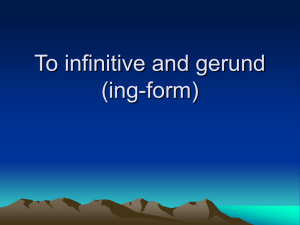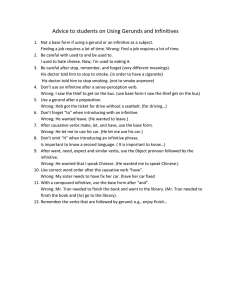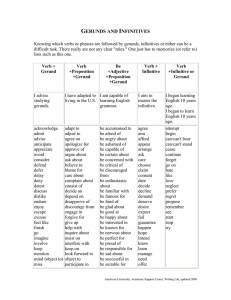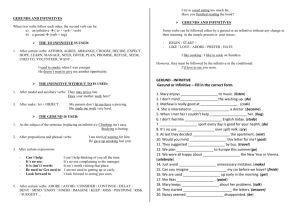Verb Lists: Infinitives and Gerunds
advertisement
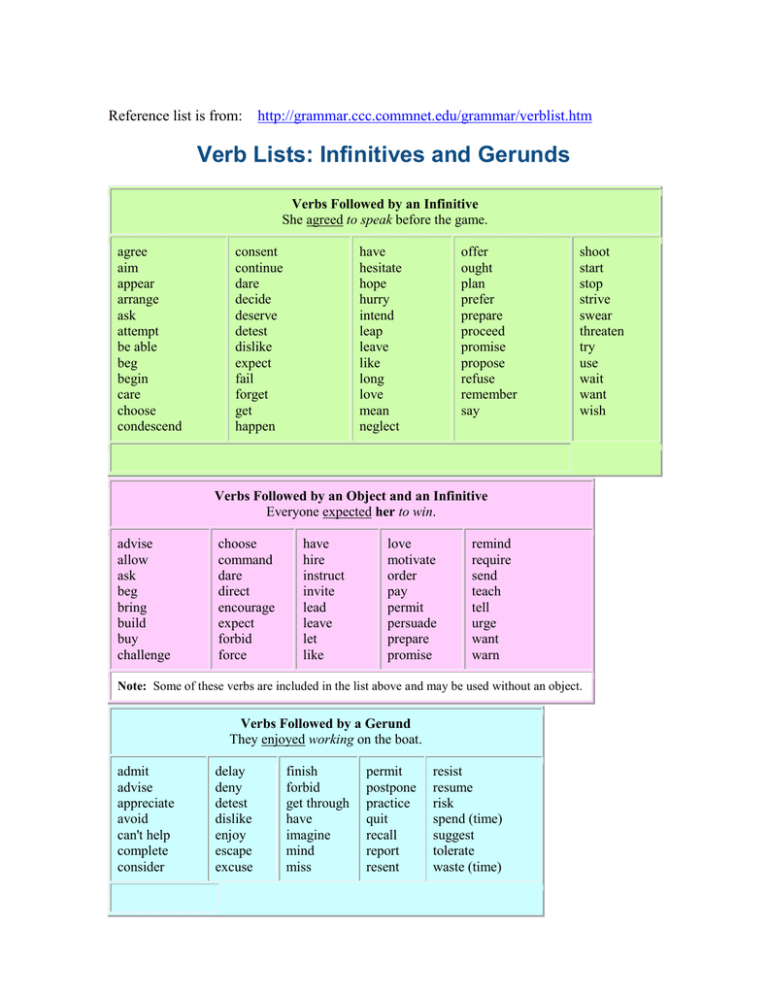
Reference list is from: http://grammar.ccc.commnet.edu/grammar/verblist.htm Verb Lists: Infinitives and Gerunds Verbs Followed by an Infinitive She agreed to speak before the game. agree aim appear arrange ask attempt be able beg begin care choose condescend consent continue dare decide deserve detest dislike expect fail forget get happen have hesitate hope hurry intend leap leave like long love mean neglect offer ought plan prefer prepare proceed promise propose refuse remember say shoot start stop strive swear threaten try use wait want wish Verbs Followed by an Object and an Infinitive Everyone expected her to win. advise allow ask beg bring build buy challenge choose command dare direct encourage expect forbid force have hire instruct invite lead leave let like love motivate order pay permit persuade prepare promise remind require send teach tell urge want warn Note: Some of these verbs are included in the list above and may be used without an object. Verbs Followed by a Gerund They enjoyed working on the boat. admit advise appreciate avoid can't help complete consider delay deny detest dislike enjoy escape excuse finish forbid get through have imagine mind miss permit postpone practice quit recall report resent resist resume risk spend (time) suggest tolerate waste (time) Verbs Followed by a Preposition and a Gerund We concentrated on doing well. admit to approve of argue about believe in care about complain about concentrate on confess to depend on disapprove of discourage from dream about feel like forget about insist on object to Section below is from: plan on prevent (someone) from refrain from succeed in talk about think about worry about http://grammar.ccc.commnet.edu/grammar/gerunds.htm Either Gerund or Infinitive: Same Meaning The verbs in the following table can be followed by either an infinitive or a gerund, and there will be virtually no difference in the meaning of the two sentences. I like to play basketball in the park. I like playing basketball in the park. attempt begin continue hate like love neglect prefer regret can't stand stand start Either Gerund or Infinitive: Different Meaning The verbs in this next, very small table can be followed by either an infinitive or a gerund, but there will be a difference in meaning. I stopped smoking means something quite different, for instance, from I stopped to smoke. The infinitive form will usually describe a potential action. forget remember stop For more information about how the meaning changes with verbs that can be followed by either a gerund or an infinitive, see this table: http://www.englishpage.com/gerunds/gerund_or_infinitive_different_list.htm
